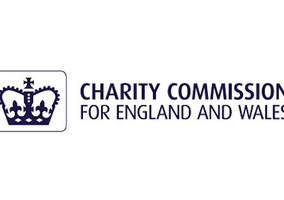Charity sector bodies have responded to an updated set of questions that charities will have to complete as part of their 2023 annual return, with one decrying a “missed opportunity” to introduce questions on diversity and impact.
The Charity Commission announced the changes in December following a consultation with the sector earlier last year.
This year, all charities must answer at least 26 questions as part of the annual return, 10 more than last year, up to a maximum of 49, which is 13 more than in 2022.
Smaller charities will be exempt from answering five of the new questions, while the Commission has reworded 19 to make them easier to understand.
Regulator aiming to become ‘more data-driven’
Helen Stephenson, chief executive at the Charity Commission, said: “We have listened to feedback and are now introducing changes that will improve the annual return for charities and allow us to regulate more effectively.
“We know that it will take time for charities to adjust their reporting and so we will be publishing a guide in January to help trustees and nominated contacts as they look to file their returns next year.
“I’m delighted we have reached the latest milestone in our ambitious strategy to become a more data-driven regulator and help ensure we are serving the public and sector as best we can.”
NPC: ‘An opportunity missed’
Theo Clay, policy manager at NPC, said that “while there are some good steps forward in the new version of the annual return, there are a number of missed opportunities”.
“To not ask charities about the diversity of their boards, as we had called on the Charity Commission to do, is a missed chance to focus attention on a vital issue and to nudge charities to think more closely about the make-up of their boards.
“Similarly, by making no moves to ask more questions about the impact that a charity brings about, the Commission is missing a chance to encourage charities to understand and report on the change they are delivering for people—a stated priority area for the Commission.
“As charities are increasingly relied upon by communities during the cost-of-living crisis, we need the regulator to be willing to step up and encourage the sector to be better. These changes therefore cannot be seen as anything other than an opportunity missed.
CFG: ‘Income threshold welcome’
Dr Clare Mills, director of policy and communications at Charity Finance Group, said: “We welcome the changes to the questions on accounting data which form part of the annual return, adjusting the format of the data requested to bring the annual return into line with charities’ annual accounts.
“It will also be helpful that signposting in the annual return will indicate where this data maps to existing charity accounting requirements.
“The introduction of the income threshold for some questions also addresses our concerns about the increased regulatory burden on smaller charities. Clear explanation of why the Charity Commission collects specific data is a further positive step.”
NCVO: ‘Commission must monitor how charities respond’
Chris Walker, policy and public affairs manager at NCVO, welcomed the Commission’s decision to introduce fewer new questions than it originally proposed.
He said: “We noted the need for the Commission to be clear about why they are asking specific questions, and whether there are alternative ways of capturing this information, and it is welcome that the response reflects this.
“The new return will still be longer however, so it remains important that the Commission monitor how charities respond and the effectiveness of simplified guidance.”
Related Articles












